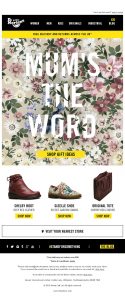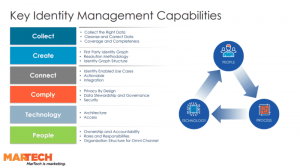Looking for a new job? Watch out for these red flags
Even when your job prospects seem uncertain, there are some things you shouldn’t overlook while navigating the job hunt.
Interviewing for a new role might seem daunting right now, between ongoing layoffs and a tricky job market. Maybe you’ve been ghosted by recruiters or haven’t received offers after a lengthy interview process. Or perhaps you’re struggling to find a role that seems like the right fit and next step in your career.
Poor communication and lack of clarity
Even when your job prospects seem uncertain, however, there are some red flags you shouldn’t overlook while navigating the job hunt. Sometimes, the things you find frustrating while interviewing with a potential employer—like poor communication or a drawn-out process—can be a sign of broader cultural issues or indicate that the company isn’t clear on what the role should entail.
“The best interview processes are well-structured and transparent about whom you are meeting with, when, and what to expect regarding the next steps,” says career leadership coach Valerie Martinelli. It’s also important to make sure your potential boss can clearly define the role, and that it doesn’t sound like multiple jobs in one.
Especially in industries like tech, which has seen waves of layoffs in recent years, a lack of transparency and clarity can be concerning. If you’ve noticed a company has particularly high turnover, it could mean there’s a morale issue or that the business is not on steady ground.
Interviews should not be interrogations
You might also find that the interview itself doesn’t feel natural and that you’re being peppered with questions about a former employer. Or maybe you were asked to do several tests during the course of the interview process—to the point that it feels like you’re working for free.
Both of these scenarios could be a sign that the company isn’t serious about hiring you or might be interviewing you to get information about a competitor. “When considering a new employer, one-sided interviews that feel more like interrogations are a huge red flag,” says job search strategist Steph Cartwright. “You should feel comfortable and be allowed to ask questions about the interviewer’s opinion on the work environment, whether the position is newly created or why it’s vacant, and what career trajectory within the company this position offers.”
When you’re looking for a fully remote job, there are other considerations to keep in mind. If you sense that micromanagement is part of the culture, a company might use remote monitoring or other productivity tracking tools to keep tabs on employees. You might also want to ask a prospective employer about onboarding processes and equipment policies, to ensure you’ll get the support you need as a remote worker.
Ask the right questions
No matter the job, there are questions you can pose to probe whether a company is the right fit for you. As return-to-office mandates continue to evolve, you should probably find out whether an employer’s policy may change and require workers to be in the office more frequently.
HR executive Sibyl McCarley also recommends explicit questions about why they’re hiring for the position in question. (“Why is this position open? Is this a new position created because of growth or would I be replacing someone who has left?”) Also make sure to ask how the company thinks about work-life balance. (“What is your approach to work-life flexibility? Is this a company-wide policy or is it determined by each manager?”)
In fact, you can uncover potential red flags before you even get to the interview stage. Perhaps the salary range is too broad or a job posting is vague about in-office expectations. In some cases, you may even notice that a job description has been lifted from another listing or does not accurately reflect the scope of the role.
“Things have changed in the workforce, and everybody’s trying to create a better candidate and employee experience,” says Neil Costa, founder and CEO of recruitment marketing agency HireClix. “If someone doesn’t have the idea of curating that experience, then maybe they’re just not a good place to work. Retention starts with the first touch.”

ABOUT THE AUTHOR
(5)
Report Post








